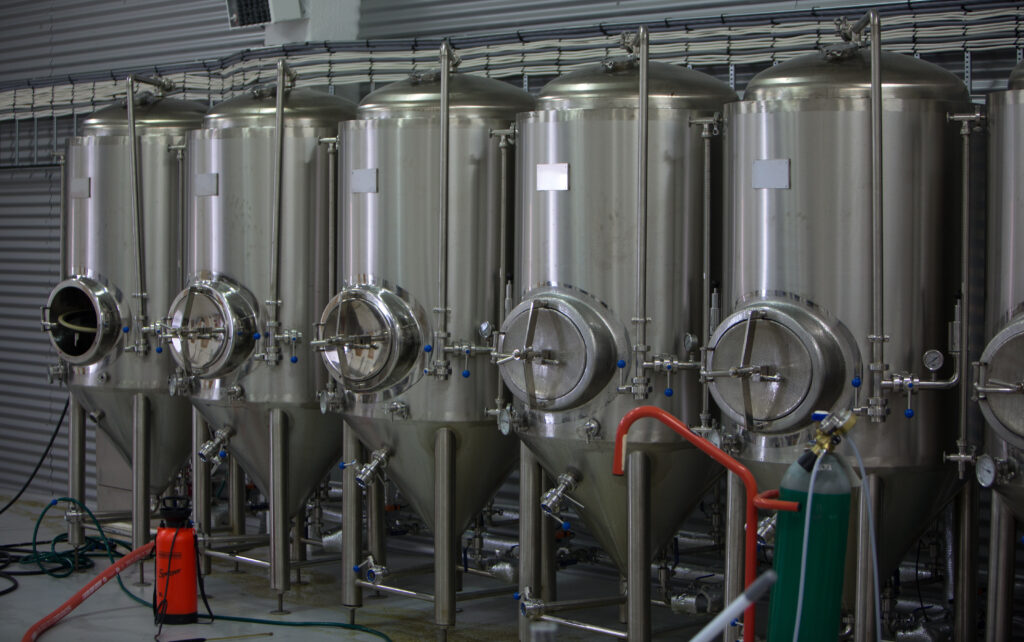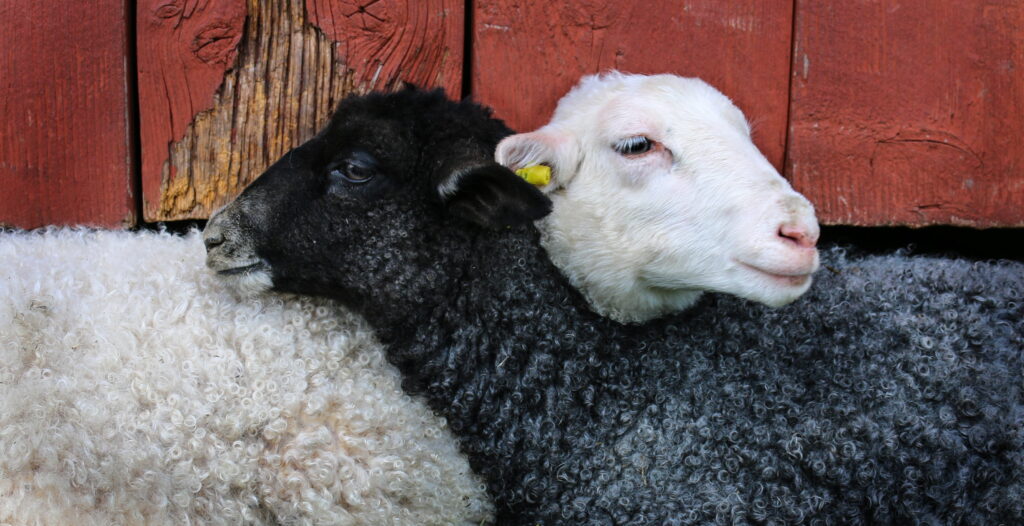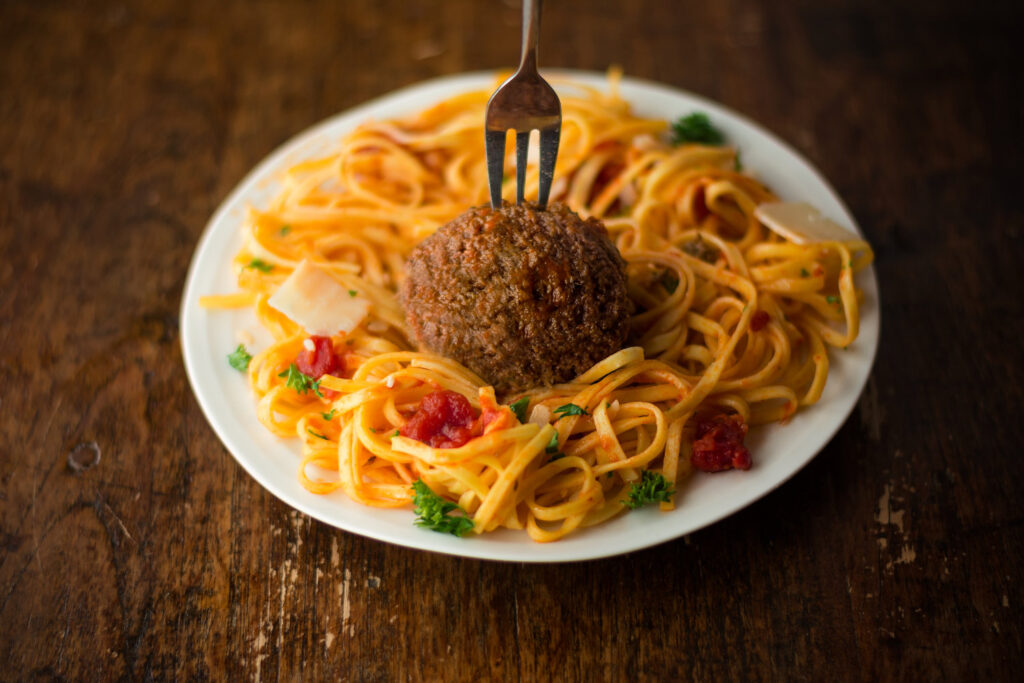I take it as a compliment to be compared to rabbits. I mean, just look at them hopping around with their big floppy ears and fluffy little tails. But when people say I eat “rabbit food,” they mean it as a slight. It’s just one of the many weird ways some people awkwardly try to mock vegans.
To be fair, vegan food does in fact overlap with a standard rabbit diet. Although, rather than just eating veggies, we can combine a whole array of plants into some deliciously fantastic food. For as long as veganism has been an ethical philosophy, there’s been only one thing excluded from our diets—animal products. But technology may be changing that.

We are entering a new age in which we get to have our ethically-produced (and perhaps even vegan-friendly) meat, eggs, and dairy products and eat them too. There are two big technologies that are ushering in animal product equivalents, with the same animal ingredients as the real thing but without killing any of our animal friends. Let’s take a look at each of them.
Cultivated Meat
Cultivated meat is real meat grown from the cells of animals. The process begins by extracting cells from animals and bathing them with nutrients inside a bioreactor. This allows the cells to multiply and grow into the components that make up meat. In the end, we are left with a piece of meat that’s biologically indistinguishable from conventional meat.
Is it ethical?
Although cultivated meat is technically an animal product because it contains real animal cells, it’s slaughter-free as no animals need to be killed. Cultivated meat did use to require bovine fetal growth serum as part of the process, but animal-free serums are now available. So, minimal harm is caused to any animals aside from a bit of discomfort with the initial extraction of the animal’s cells.
How will it be better than conventional meat?
The most obvious benefit of cultivated meat is the opportunity to replace conventional meat, thus preventing the slaughter of billions of animals per year. It’s also a more eco-friendly option by cutting down on land use and water consumption as well as greenhouse gas emissions. Moreover, since the meat can be customized to grow with specific nutritional profiles, it’s feasible to grow healthier meat, which will also be free of antibiotics, hormones, and steroids. It’s even possible to grow novel types of meat that wouldn’t otherwise be available, such as the recently created mammoth meatball.
What about costs?
In 2013, cultivated meat was eaten for the first time, and it came with a sky-high price tag of $330,000. Since then, the price of cultivated meat has dropped dramatically, with cultivated meat burgers costing under $10. As the technology for cultivated meat advances and production is able to scale up, prices will continue to drop, with predictions that cultivated meat could cost the same as conventional meat by the end of the decade. If the tens of billions of dollars in subsidies that the U.S. government spends annually to artificially lower the price of conventional meat were shifted toward the cultivated meat industry, it could match the price of conventional meat much sooner. And ultimately, cultivated meat should become cheaper than conventional meat as it’s more efficient to just grow meat rather than a whole animal.
When can we buy it?
For years, we’ve been hearing that one day we will be eating meat grown inside a lab. Going all the way back to 1931, even Winston Churchill anticipated that “we shall escape the absurdity of growing a whole chicken in order to eat the breast or wing, by growing these parts separately under a suitable medium.” For lots of people, that day is already here. This is actually kind of old news with cultivated meat products being sold by Eat Just in Singapore since 2020.
In the United States, the FDA recently took a giant leap forward in bringing cultivated meat to our plates by declaring both UPSIDE Foods and Good Meat’s cultivated chicken meat safe to eat. Cultivated meat could take up to a few years to make its way to your local grocery store shelves, but it may be appearing on menus in U.S. restaurants by the end of the year.
Throughout the rest of the world, customers may have to wait a bit longer to try cultivated meat. The big hurdle is completing the necessary governmental regulatory processes to allow these products to be sold. But just as cultivated meat was already declared safe for consumers in Singapore and the US, it should eventually get governmental approval in other countries as well.
Precision Fermentation
Fermentation is an ancient process that uses microorganisms to create all sorts of food and beverages like wine, beer, kombucha, and cheese. While employing this same traditional fermentation process, precision fermentation tailors microorganisms, instructing them to produce specific ingredients that have the same composition as those found in animal products. These microorganisms are simply placed in a mixture of water, nutrients, and sugar, and while fermenting, they can brew an array of ingredients, such as animal proteins and fats, collagen, egg whites, and even honey. All of this happens without the involvement of any animals, which is why precision fermentation products are often labeled “animal-free.”
Is it ethical?
Precision fermentation aligns well with the vegan philosophy of avoiding any harm or exploitation of animals. While we end up with ingredients that are indistinguishable from their animal counterparts, no animals are used at any point in the process of precision fermentation.
How will it be better than conventional animal products?
The standout benefit of this technology is that it allows us to create the same ingredients found in animal products but without harming any animals. This means that we get animal-free food and beverages that are customized to taste and feel more like conventional animal products while also adding nutritional value. Since individual components are being grown, less desirable aspects of conventional animal products can also be excluded. For example, Perfect Day’s precision fermentation dairy products contain animal-free whey (which helps us build muscles), while also being cholesterol and lactose free. And for the same reasons as with cultivated meat, animal-free products made with precision fermentation are more eco-friendly than conventional animal products.
What about costs?
While products made with precision fermentation tend to be a bit more expensive than their animal counterparts, they are about on par with the cost of other specialty vegan foods and beverages. And just like with cultivated meat, as the production of precision fermented products scales up, we can expect prices to drop with predictions that it will be five times cheaper than conventional animal products by 2030.
When can we buy it?
You may already be eating or drinking products designed by precision fermentation and not even realize it. The ever-popular Impossible Burger has been using precision fermentation to create its animal-free heme, the ingredient giving their burgers that distinctly meaty flavor. Perfect Day also produces animal-free whey, which is found in a whole range of products from Brave Robot’s animal-free ice cream to California Performance Co.’s animal-free whey protein powder.
Impossible Food’s products are widely available in restaurants and grocery stores alike, including even at Burger King with the Impossible Whopper (just skip the mayo to make it vegan-friendly). Perfect Day’s animal-free dairy is also rapidly becoming more available. You can check out their website to see whether any products are offered nearby, and if it’s not yet available at your local grocery store, you can visit their partners’ websites to have shelf-stable products delivered straight to your home.
Navigating Ethics In A New Technological Era
For our not-yet-vegan friends, there are very clear benefits in switching from conventional animal products to ones created through the technologies of cultivated meat and precision fermentation. It’s hard to overstate the monumental impact that the adoption of these foods will have on the lives of our fellow animals.

What about current vegans, though? Should we embrace these new technological advancements as well?
When it comes to cultivated meat, the ethics are a tad murky. Cultivated meat does involve some animal exploitation. On the other hand, this technology will no doubt make the world a better place for animals. If vegans boycott cultivated meat, we’re also reducing the total number of customers, which could slow down the process of these products becoming widely affordable and available. The question of whether vegans should eat cultivated meat ultimately comes down to one’s own ethical considerations. Should we remain ideologically pure and commit to avoiding any animal exploitation? Or should we take a more pragmatic route and concede to causing a bit of discomfort to a few animals in order to support a technology that will spare so many animals from a life of suffering?
With precision fermentation, the ethics are much less complicated. Even though we might be eating and drinking products with ingredients that are the same as animal products, the production process doesn’t cause harm to even a single animal. So, it would be hard to argue that precision fermentation isn’t vegan-friendly.
Personally, I’m not the target demographic for cultivated meat. I’ve been vegan for over a decade but became a vegetarian at the age of six after watching the movie Babe. So, I honestly don’t even like the smell of meat. But I totally plan on feeding my kitties cultivated meat (once it’s available) and will be supportive of my friends and family eating it as well.
I am very much, though, in the target demographic for precision fermentation products and have already tried animal-free whey protein powder (which tasted way better than any other protein shake I’ve tried). I’m also excited to try some animal-free dairy ice cream and cheese as soon as I can get my hands on it!
Ultimately, it’s going to be a personal decision to choose whether to embrace cultivated meat and precision fermentation. We are entering a new era, though, where we might have to reconsider what it means to be vegan as animal-free and/or slaughter-free meat, dairy, and egg products may become an ethically-friendly part of our diets.
Get more like this—Sign up for our daily inspirational newsletter for exclusive content!
__
Photos: Mats Lindh via Flickr; Mosa Meat via Good Food Institute; Lauren Wesp; Royalty-free Image via Pxfuel






